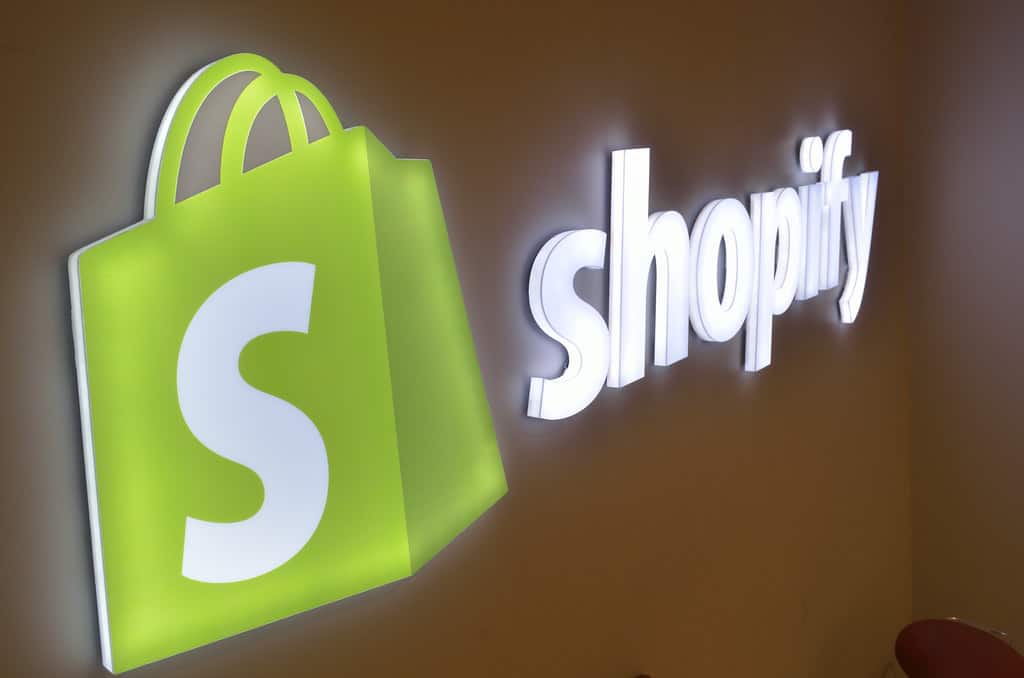
Call it Act Two (or Three or Four) for Canadian e-commerce company Shopify (Shopify Stock Quote, Charts, News, Analysts, Financials TSX:SHOP), which just delivered a new vote of confidence in the leadership of CEO Tobi Lütke even as SHOP’s stock price remains mired in multi-year lows. But investors will want to stick around for the rest of the show, says National Bank Financial analyst Richard Tse, who gave an update on the company on Wednesday where he reiterated his “Outperform” rating on the stock, saying the runway for Shopify remains long and full of opportunity.
Shopify announced on Wednesday the results of a couple of key votes at its AGM, including a stock split and a proposal to grant Lütke and his family and affiliates 40 per cent of the company’s voting power for as long as he stays with the company (which, being only 41 years of age could be a long-term gig for Lütke). Both proposals passed and now begins a new chapter for Shopify, one which will see the company build out its fulfillment network in aid of bringing its e-commerce platform to more and more SMB and enterprise customers.
National Bank hosted Shopify President Harley Finkelstein for a virtual fireside on Wednesday where Tse posed a number of questions to Finkelstein on topics such as the governance change, Shopify Fulfillment Network (SFN) and the company’s other growth trajectories.
To start, Tse asked about the rationale behind giving Lütke his 40 per cent, on which Tse summarized the response as being all about allowing management to have the flexibility and long-term orientation to execute on its vision.
Tse said he agrees with the approach.
“If you’ve been following our research, you may recall our view that the governance structure updates consolidate CEO Tobi Lütke’s control of the Company as Shopify embarks on an ambitious growth strategy. Given a number of elements of that growth strategy require a longer-term perspective, it’s not unreasonable to assume that was a driver behind the proposed (and now approved) changes,” Tse wrote.
Tse asked Finkelstein about SFN and where it’s headed, noting that the company appears to be shifting gears in terms of owning its own fulfillment centres versus contracting to third parties. Finkelstein responded by saying that the company has learned that merchants who need customization or have massive packages are not a good fit for Shopify’s SFN but that even without those merchants the total addressable market is massive. Finkelstein added that Shopify will be operating some fulfillment hubs to ensure quality control while at the same time leveraging third party logistics for the last mile, with Finkelstein noting that new acquisition Deliverr uses a similar model.
On this, Tse said the asset-light approach will allow SFN to achieve scale at an accelerated rate while at the same time reducing the amount of overhead and potential headaches that come with managing a fully integrated network as does Amazon.
“Given that SFN is still in its infancy, it is difficult for us to say with assurance whether same-day/one-day shipping will be achievable under the revamped strategy. That said, given the Company’s early success and historical track record of execution, we see a more than reasonable chance of success,” Tse wrote.
“Bottom line, if SFN is successful, it will not only alleviate one of merchants’ biggest pain points (fulfillment) but also create a competitive moat given the complexities involved in developing such a network. It seems the value prop to Amazon is that it offers an equivalent service while allowing merchants to maintain control of their own data,” he said.
Other topics broached by Tse included Shopify’s SFN in comparison to Amazon’s (Finkelstein said Fulfillment by Amazon comes with strings attached and dilutes merchants’ ability to control the relationship with customers); the growth of Shopify Plus (Finkelstein said the company is not planning on becoming solely an enterprise-focused business); and Shopify’s partnerships with aggregators and platforms (Finkelstein stressed the aligned interests between SHOP and its partners, singling out BNPL company Affirm which was selected to power Shop Pay Instalments).
“We continue to believe Shopify is in the early stages of scaling. In our view, Shopify remains a leading disruptor and we believe upside in the stock will come from organic growth via incremental drivers like International, new Merchant Services like SFN, Shopify Plus (larger enterprises), Shop, Shop Pay, expanding channel partnerships (like Facebook and Google) and now Point of Sale (POS) Pro for brick-and-mortar retail,” Tse wrote.
Tse is forecasting SHOP to generate 2022 revenue and adjusted EBITDA of $5,713.5 million and $118.9 million, respectively, and adjusted EPS of $1.21 per share. With his maintained “Outperform” rating, Tse reiterated his US$750.00 per share target price, which at press time represented a projected one-year return of 91.6 per cent.





 Share
Share Tweet
Tweet Share
Share




Comment